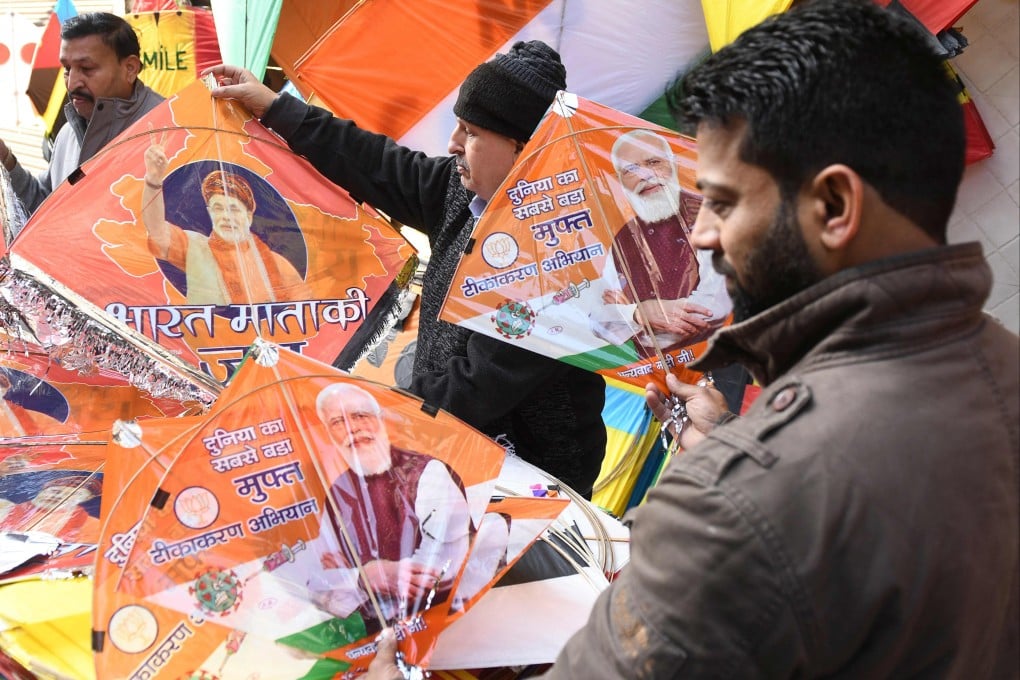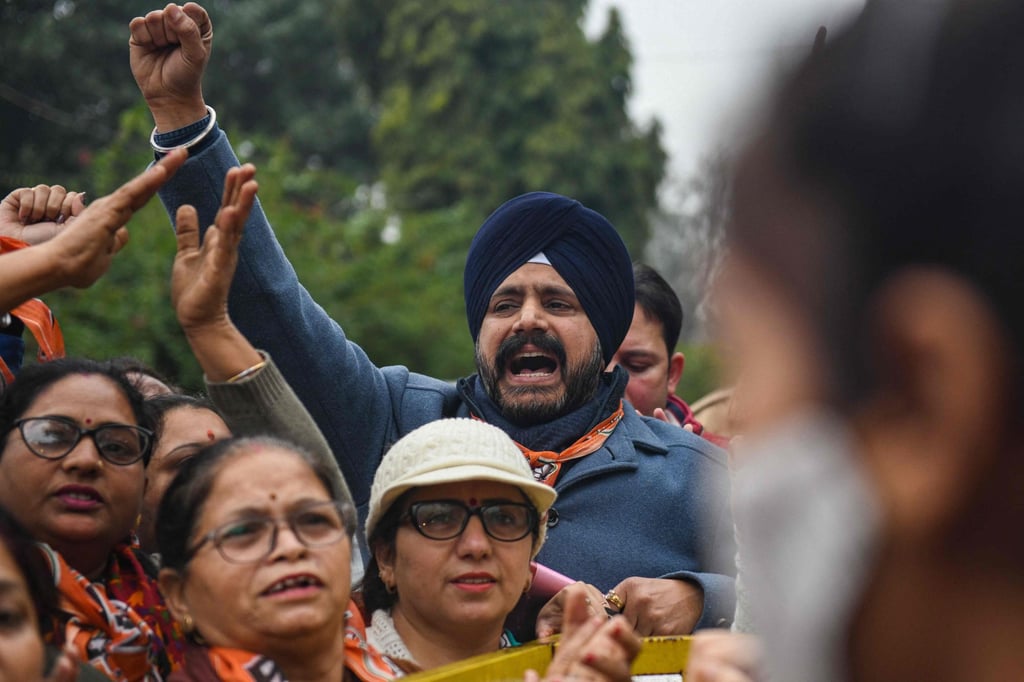Omicron won’t slow Modi’s election juggernaut as India’s strongman gears up for ‘must win’ polls
- Elections in five states – including Uttar Pradesh, nation’s most populous – begin in February; four are controlled by Narendra Modi’s BJP party
- Analysts see the ballots as a vital gauge of the Indian strongman’s popularity and success ahead of a general election in 2024

Even as India grapples with a third wave of Covid-19 infections fuelled by the Omicron variant, with every fourth person testing positive in recent days, its election juggernaut has not stopped.
Political parties have held massive rallies bringing together tens of thousands of mostly unmasked people ahead of local elections in five regions, including the most populous state, Uttar Pradesh, that begin on February 10.
India’s health ministry on Wednesday said the state’s case count had risen to 44,466 – 14 times higher than last week’s cases.
In all, around 183 million voters will be eligible to vote in Uttar Pradesh, Punjab, Uttarakhand, Goa and Manipur, with results declared on March 10.

His Bharatiya Janata Party (BJP) controls four of the five states – Punjab being the exception – but has seen its popularity eroded by rising unemployment rates and soaring food inflation.